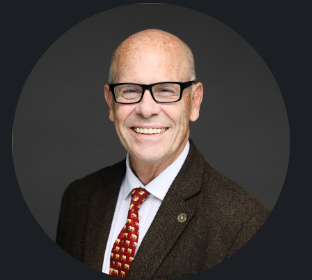Geothermal Heating and Cooling Webinar Series
Agenda
Thermodynamic Basics of Geothermal Systems
December 15, 2016, 11:00 AM – 12:00 PM CST
Applying the laws of thermodynamics to HVAC systems
Understanding the refrigeration cycle
Calculating heating and cooling loads
The effect of air flow and insulation
How comfort is measured
Understanding efficiency
Understanding Earth Loop Systems
December 15, 2016, 12:30 – 2:00 PM CST
The hidden assets of geothermal technologies
Solar energy in the Earth
Architecture of closed loop systems
• Horizontal ground loops
• Vertical ground loops
• Direct exchange systems
• Thermal load sharing
• Mini-grids
Applications for open loop (Class V Thermal Exchange) systems
• Single well
• Two-well systems
Evaluating topography
Measuring soil conductivity
Environments for ground-loop systems:
beneath yards, fields, parking lots, and buildings
Choosing and Designing Geothermal Systems
December 16, 2016, 11:00 AM – 12:00 PM CST
Distributed GHPs or chiller plants
Basic components of geothermal heat pump (GHP) systems:
Pumps, condenser water piping, heat pump, heat exchanger
Forced air systems
Hydronic systems
Domestic hot water options
Geothermal swimming pool heaters
Determining loop type
Making heat loss calculations
Sizing the unit
Sizing the loop
Writing a request for proposal (RFP)
Writing a driller specification
HS2 hydronic design software
Evaluating and Maintaining Geothermal Systems
December 16, 2016, 12:30 – 2:30 PM CST
Incentives to use geothermal
Geothermal utilities
Measuring performance
Calculating savings and cost
Environmental benefits
Tax credits, incentives and rebates
Property Assessed Clean Energy (PACE)
Performing routine maintenance on GHPs
Loop maintenance (automatic or periodic)
Pump maintenance/monitoring
Webinar Instructions
All attendees must log-on through their own email – attendees may not watch together if they wish to earn continuing education credit. HalfMoon Education Inc. must be able to prove attendance if either the attendee or HalfMoon Education Inc. is audited.
Certificates of completion will be provided for each webinar attended and will be sent via email in PDF form about five business days after the date of the conclusion of the series.
Webinars are presented via GoToWebinar, an easy-to-use application that can be run on most systems and tablets. Instructions and login information will be provided in an email sent close to the date of the webinar. It is highly recommended that you download, install and test the application before the webinar begins by clicking on the link in the email.
GoToWebinar system requirements:
Operating System:
Windows 7, Windows 8 or Windows 10
Mac OSX 10.9 (Mavericks) – 10.11 (El Capitan)
Web Browser:
Chrome v34+, Firefox v34+, Internet Explorer 8+, Microsoft Edge, Safari v6+
Internet connection: Hardware:
Minimum of 1Mbps 2GB RAM or more
Credits
Architects:
5.5 HSW Contact Hours
AIA:
5.5 HSW LUs
Engineers:
5.5 PDHs
Continuing Education Credit Information
HalfMoon Education is an American Institute of Architects-approved continuing education sponsor (No. J885), is an approved continuing education sponsor for architects in Florida, and is deemed an approved sponsor for architects in New York. Check each webinar for the number of contact hours available. HalfMoon Education is an approved engineer continuing education provider in Florida, Indiana, Louisiana, Maryland, New Jersey (Approval No. 24GP00000700), New York (NYSED Sponsor No. 35), North Carolina, and North Dakota. Other states do not preapprove educators or courses. These webinars offer engineer continuing education credit in all states. Check each course listing for the number of PDHs available. Participation and knowledge retention will be verified for these webinar events, certificates of completion will be provided, and LUs will be reported to the AIA.
Speakers
Jay Egg, CMC
Egg Geo, LLC After serving in the US Navy nuclear power field, Jay Egg began a career in mechanical design engineering & contracting. Now, as an expert consultant, Jay sits on several technical code committees internationally; notably the technical committee for the IAPMO Uniform Mechanical Code. Jay has co-authored two McGraw-Hill Textbooks focused on geothermal HVAC technologies and continues to write curriculum and lecture on the merits of Clean Heating and Cooling technologies.
After serving in the US Navy nuclear power field, Jay Egg began a career in mechanical design engineering & contracting. Now, as an expert consultant, Jay sits on several technical code committees internationally; notably the technical committee for the IAPMO Uniform Mechanical Code. Jay has co-authored two McGraw-Hill Textbooks focused on geothermal HVAC technologies and continues to write curriculum and lecture on the merits of Clean Heating and Cooling technologies.

